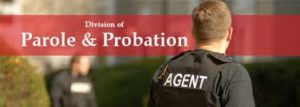WHAT IS PAROLE AND PROBATION?
Many people are released from Maryland prisons on parole and probation.
Parole is the early release from prison – before the prisoner has served the entire sentence. Once a person is released from prison on parole, they serve the rest of their sentence in the community under the supervision of the Division of Parole and Probation (DPP). They must also comply with a specific set of requirements, called “conditions of parole.” Violating those conditions can result in a return to prison.
Prisoners are not entitled to parole. Parole Boards consider many factors when deciding whether or not to grant parole to a person.
Probation is used by judges as a sentencing tool. One of the most common sentencing options a judge may use is to impose a period of probation on a convicted offender. Probation allows an offender to remain in the community under supervision.
Just like with parole, there are terms and conditions set when someone is given probation over prison time and violating those conditions can result in completing a sentence in prison.
FEES
On October 4, 2024, Maryland’s corrections department cancelled the debt for mandatory, parole and administrative release fees, as well as drug testing fees, for people who are currently under the supervision of the agency’s parole and probation division.
On October 1, 2024, Governor Moore signed House Bill 531, which allows the Maryland Parole Commission to exempt people, either in full or in part, from the monthly supervision fees and random testing fees they were previously required to pay to the Division of Parole and Probation. The Commission is not required to exempt anyone, however, and can still revoke parole and send someone back to prison over unpaid fees at its discretion.
Supervisory fees imposed on people on parole and probation has always created a barrier to successful reentry. The fees typically amounted to $50 per month and the usual probationary period was 36 months, resulting in a total of $1800. The mandatory drug testing fee of $100 was also a burden.
These fees represented a significant barrier to successful reentry as most ex-offenders struggle during this time to find employment and housing. With no income, these fees often lead to a return to crime or return to prison.
We applaud Governor Moore for removing this barrier.


